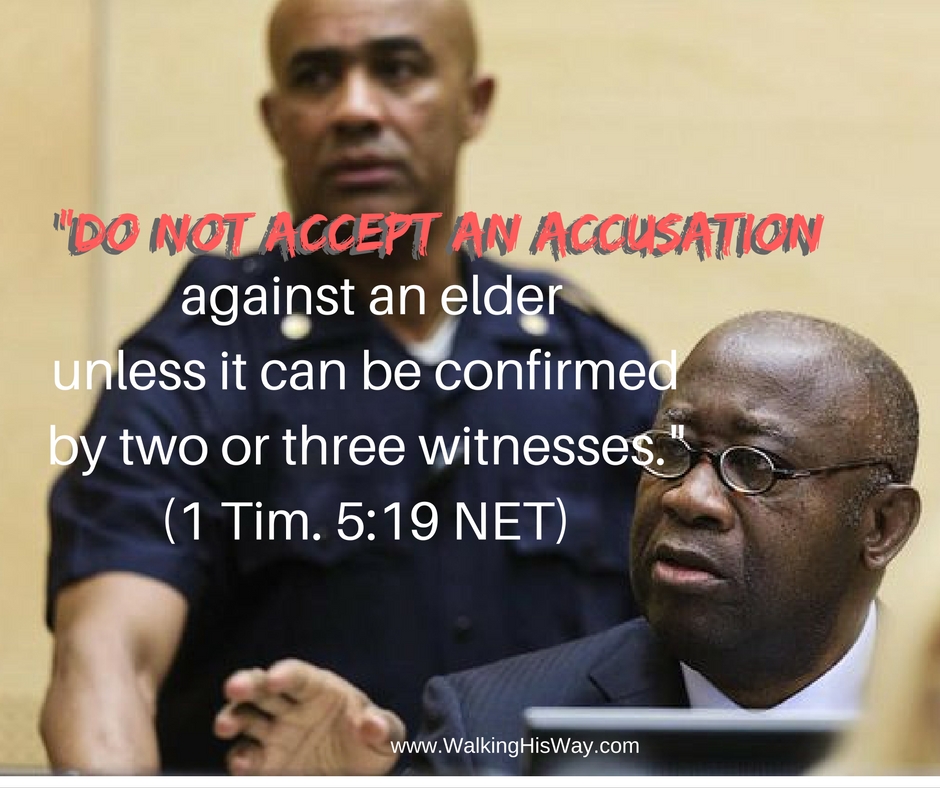 1 Tim 5:19, “Do not accept an accusation~| against an elder unless it can be confirmed by two or three witnesses.”
1 Tim 5:19, “Do not accept an accusation~| against an elder unless it can be confirmed by two or three witnesses.”
Ministers are always open to criticism, especially when they exhort people to change their habits, culture, or behavior. Unfortunately, many have the tendencies of proverbial fools, as indicated by their eagerness to accuse vulnerable leaders: “Avoiding a fight is a mark of honor; only fools insist on quarreling” (Prov 20:3NLT).
Every major leader in Scripture suffered false accusations from people seeking to discredit him. Trust is built on credibility and integrity. If a person can be discredited by an accusation, whether true or false, his integrity becomes suspect and his ministry can be destroyed. Because of this delicate trust, great care and discernment must be exercised when a leader’s integrity is questioned.
The command in 1 Timothy 5:19 is to “stop accepting an accusation,” which means not “to entertain or consider it in your mind.” As a present negative command, it implies that they were doing this and should stop. Other leaders and the congregation must be taught how to respond to gossip, griping, and criticism. The answer is to turn a deaf ear “unless it can be confirmed by two or three witnesses.”
God warns His people, “Do not touch My anointed ones, and do My prophets no harm” (Psa 105:15). Do not treat casually the reputation of a spiritual leader unless the accusation is at least doubly confirmed. Deuteronomy 19:15 says, “One witness shall not rise against a man concerning any iniquity or any sin that he commits; by the mouth of two or three witnesses the matter shall be established.” Jesus said, “By the mouth of two or three witnesses every word may be established” (Matt 18:16), and Paul quotes this passage in
2 Corinthians 13:1 when he is giving them a third warning about their sins (2 Cor 11:21).
Unsubstantiated accusations must not be tolerated; however, when confirmed by various sources, they must be seriously investigated. Without credibility, ministry to others is impossible. No one will listen to someone they do not trust. Protect each other’s reputation.
“Why are we so prone to believe everything bad about a person, especially a leader? Give me the conviction to protect my leaders from gossip.”
